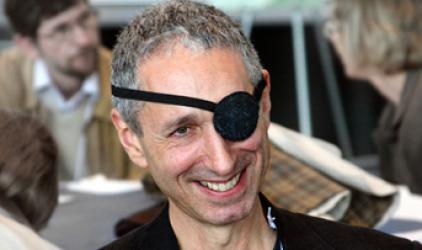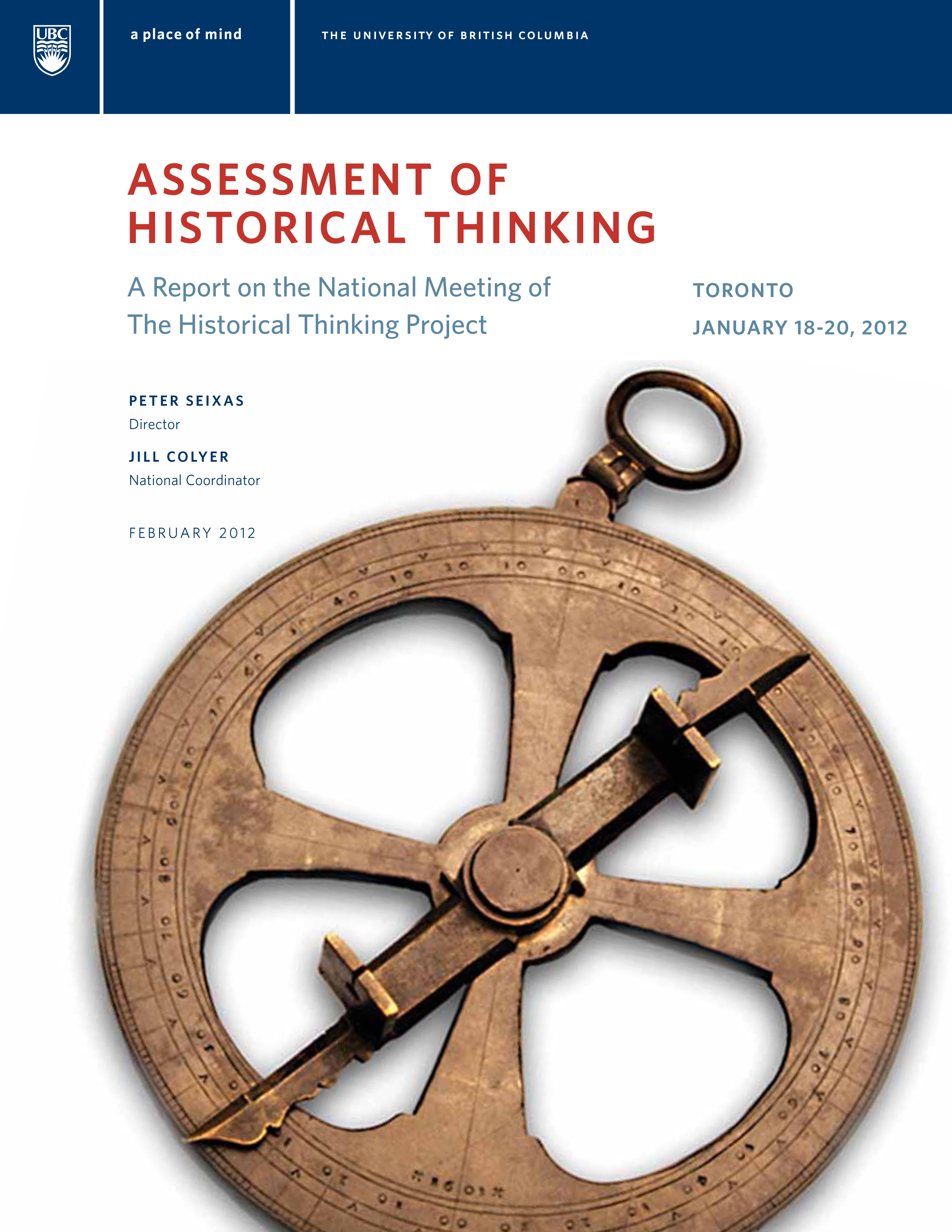Assessing Historical Thinking (Peter Seixas)

Google has radically transformed our relationship to information in general and to little bits of factual information in particular. The assessment of high school history learning, which for a century has valued those bits as the centerpiece of its practice, now faces an unprecedented glut. There are ever more of them, ever easier to access, worth less and less. School history faces a crisis of information. Mere memorization can no longer be the name of the game.
What else, other than facts-at-their-fingertips, do we expect from history education at the high school level? After a generational hiatus following the path-breaking work of the British Schools Council History Project, internationally history curriculum documents and standards statements have, in recent years, increasingly moved towards explicit definitions of historical thinking. Conceptions of what it means for students to progress in history have gone beyond the accumulation of more factual knowledge about more topics (which will not disappear), to the advancement in their ability to tackle historical problems.
Curriculum and standards statements have outpaced assessments, however. One reason for the persistence of history as memorization in assessments is the ease and efficiency with which it can be tested. By comparison, the assessment of historical thinking is a daunting—but inescapable—challenge, one we are confronting in our current projects.
In January 2012, the annual meeting of the Historical Thinking Project (HTP) was entirely devoted to assessment of historical thinking, with presentations from the United States Advanced Placement history team; a team of researchers from Malmö University, responsible for the Swedish national history assessment; Denis Shemilt, the Schools Council History Project pioneer from the UK; and a team of Stanford University researchers, along with prominent Canadian researchers and teachers.
The HTP has, from the outset, recognized the essential role of assessment and has contributed tools for classroom-based assessments, providing rubrics to assess students’ work on particular lessons. Now, a new research initiative, Assessment of Historical Thinking Project, has taken the next step. An interdisciplinary team of UBC researchers is working on enriching classroom assessments, as well as enabling larger-scale school, district and provincial assessment of historical thinking.
The team comprises myself, with a background in history education; Dr. Kadriye Ercikan, with expertise in assessment and measurement; and two advanced doctoral students, Lindsay Gibson (in history education), and Juliette Lyons-Thomas (in assessment and measurement). We developed an assessment and conducted a validation study, which included a group administration to 441 Grade 11 students in Kelowna, and an individual administration of a “think-aloud” protocol, where 35 Vancouver students spoke as they read and answered the questions. Kadriye presented an overview of the project at the January HTP meeting and we presented two papers at the American Educational Research Association meetings in Vancouver.


